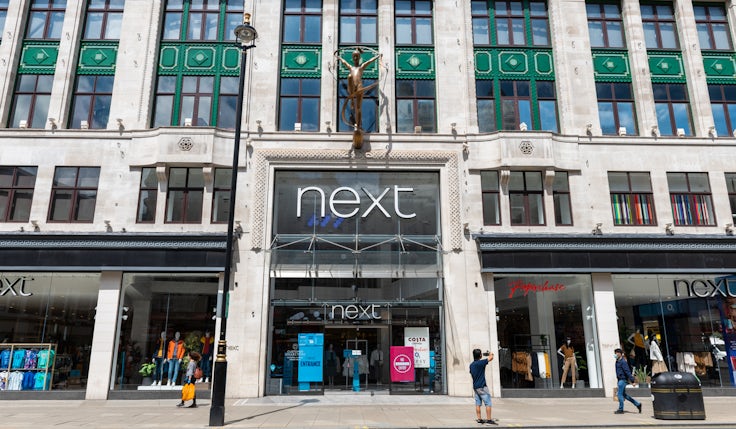Next remains cautious despite ‘better than anticipated’ Christmas
Despite sales rising 4.8% over the festive period, Next fears cost of living pressures could dampen consumer demand in 2023.
 Next is remaining “cautious” in its outlook for the year ahead, despite Christmas sales being “better than anticipated”.
Next is remaining “cautious” in its outlook for the year ahead, despite Christmas sales being “better than anticipated”.
Full price sales rose 4.8% against 2021 levels in the nine weeks to 31 December, a £66m improvement on the retailer’s previous guidance. Full price sales online were up 0.2% over the period, while physical retail sales grew by 12.5%. As a result of the sales uplift, Next has increased its full year profit before tax guidance by £20m to £860m, up 4.5% on 2021.
Both online and retail sales exceeded the retailer’s full price expectations, with physical retail performing particularly strongly. Next admitted it had “underestimated” the negative effect Covid had on retail sales last year, having also “underestimated the effect improved stock levels would have on both businesses” in 2022.
The retailer’s end-of-season sale stock is up 60% on the previous year, as a result of low surplus stock in 2021.
Remaining cautious, Next’s initial guidance for the year ending January 2024 is for full price sales to be down 1.5% and profit before tax of £795m.
Next CEO: Marketing spend is ‘not a decision made in the boardroom’
Recognising some onlookers may consider this assessment “overly cautious”, Next believes price increases for essential goods, rising mortgage costs and continued price inflation for its own products could dampen consumer demand.
CEO Retail Economics, Richard Lim, describes Next’s results as all the more “impressive” given the squeeze on household finances. He notes the rise in store sales reflects consumers attempting to keep a tighter grip on their budgets, amid uncertainty over whether online orders would arrive on time due to strike action.
Noting the outlook “remains tough”, Lim adds that a combination of rising mortgage costs, spiralling energy bills and ongoing inflation will hit discretionary spending in 2023, putting increasing pressure on retailers.
Impact of inflation
Indeed, Next expects inflation for its products to peak at 8% for the spring/summer season, with inflation during the second half of 2023 no higher than 6%, although it is still negotiating prices.
Despite experiencing an easing in supply chain cost pressures, given 80% of Next’s contracts are negotiated in dollars the devaluation of the pound has had a “significant impact” on prices. The retailer is also experiencing an increase in UK operating expenses, as a result of wage inflation, energy costs and investments in tech.
Amid the inflationary pressures, Next plans to take a flexible approach to marketing investment, adjusting spend in line with ROI.
In September, CEO Lord Simon Wolfson told Marketing Week marketing “isn’t a decision that’s made in the boardroom”, but is decided on a campaign-by-campaign basis. The business typically aims to make £1.50 on every £1 spent on marketing, according to Wolfson.
Aside from negotiating the pressures of inflation, Next has been busy in recent months with acquisitions. In late November the business bought fashion chain Joules out of administration in a deal worth £34m. Pledging to keep around 100 Joules stores open, Next now owns a 74% stake in the retailer.
The same month, the company paid £3.4m to acquire Made.com’s brand and intellectual property after the furniture retailer collapsed.





